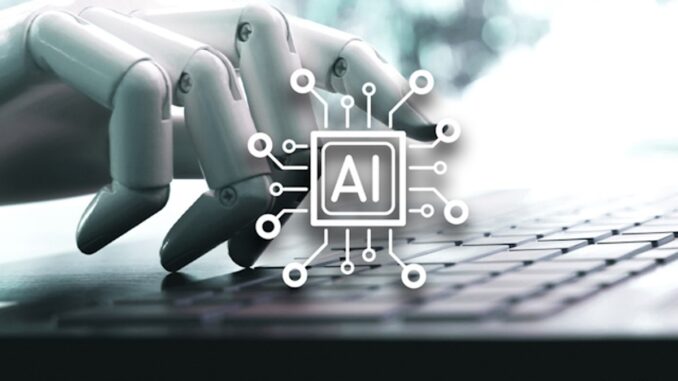
The advancement of artificial intelligence (AI) brings about numerous opportunities alongside significant ethical considerations. Here’s a detailed exploration of both aspects:
### AI Opportunities 1. **Improved Efficiency and Productivity** – **Automation of Routine Tasks**: AI can handle repetitive and mundane tasks, allowing human workers to focus on more complex and creative activities.









– **Enhanced Decision-Making**: AI systems can process vast amounts of data quickly, providing insights that improve business strategies and operational effectiveness.
2. **Innovation Across Sectors**
– **Healthcare**: AI can revolutionize patient diagnosis and treatment through predictive analytics and personalized medicine, leading to better health outcomes.
– **Transportation**: Autonomous vehicles and smart traffic management systems promise to improve road safety and reduce congestion.
– **Finance**: AI-driven financial analytics and fraud detection systems can enhance security and optimize investment strategies.
3. **Personalization and Consumer Experience**
– **Tailored Services**: AI can analyze user data to deliver personalized recommendations in e-commerce, streaming services, and advertising, improving customer satisfaction.
– **Enhanced User Interfaces**: Natural language processing (NLP) enables more intuitive interactions with technology through virtual assistants and chatbots.
4. **Data-Driven Insights**
– **Predictive Analytics**: Businesses can forecast trends and customer behaviors, enabling proactive strategies that drive growth.
– **Market Research**: Businesses can leverage AI to analyze consumer sentiments and market conditions, facilitating more informed decision-making.
5. **Sustainability and Environmental Benefits**
– **Resource Management**: AI technologies can optimize energy consumption and improve waste management, contributing to environmental sustainability.
– **Climate Change Mitigation**: AI models can help predict climate patterns and assess the impact of various interventions, informing better policy-making.
6. **Education and Learning Enhancement**
– **Personalized Learning Paths**: AI-driven educational tools can adapt to individual learning styles and speeds, helping students reach their potential.
– **Admin Efficiency**: AI can automate administrative tasks in educational institutions, allowing educators to focus more on teaching.
### Ethical Considerations
1. **Bias and Discrimination**
– **Algorithmic Bias**: AI systems can perpetuate or exacerbate existing biases present in training data, leading to unjust outcomes in areas like hiring, lending, and law enforcement. Ensuring fairness and equity in AI algorithms is critical.
2. **Privacy and Data Security**
– **Data Collection Practices**: AI systems often require vast amounts of personal data, raising concerns about consent, ownership, and usage. Strong data protection measures and transparency are necessary to safeguard privacy.
– **Cybersecurity Risks**: As AI systems become more prevalent, they may also become targets for cyberattacks, necessitating robust security measures.
3. **Job Displacement and Economic Impact**
– **Automation of Jobs**: While AI creates new opportunities, it can also lead to job loss in certain sectors. It is essential to plan for workforce retraining and support for those affected by automation.
– **Economic Inequality**: The benefits of AI may accrue unevenly, exacerbating existing economic disparities. Policymakers must consider strategies for inclusive growth.
4. **Accountability and Transparency**
– **Decision-Making Transparency**: Many AI systems operate as “black boxes,” making it difficult to understand how decisions are made. This lack of transparency can complicate accountability and trust in AI systems.
– **Governance Frameworks**: Developing clear ethical guidelines and regulatory frameworks for AI deployment is necessary to uphold accountability.
5. **Autonomy and Control**
– **Autonomous Systems**: As AI systems gain more autonomy, concerns arise regarding the extent of human oversight and control. It is crucial to ensure that there are mechanisms for accountability and intervention in AI decision-making processes.
– **Ethics in AI Development**: Developers must prioritize ethical considerations throughout the AI lifecycle, emphasizing responsible innovation.
6. **Societal Impact**
– **Surveillance and Civil Liberties**: The use of AI in surveillance raises concerns about privacy rights and civil liberties, particularly in authoritarian contexts.
– **Manipulation and Misinformation**: AI technologies can be misused to create deepfakes or spread disinformation, posing threats to democratic processes and societal trust.
### Conclusion
While the opportunities presented by AI are substantial, they must be navigated with a mindful approach that addresses ethical considerations. This includes fostering transparency, accountability, and inclusiveness while developing fair and equitable systems that promote the well-being of society. Engaging various stakeholders—governments, industry leaders, ethicists, and the public—will be crucial in shaping the responsible and beneficial use of AI technologies.


Leave a Reply